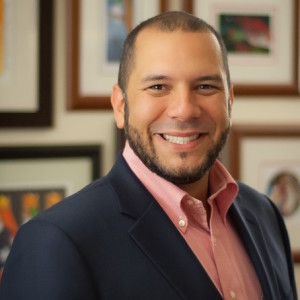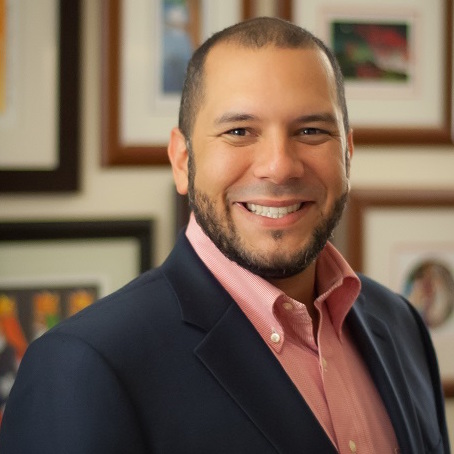Beyond the Social Problems: Life Together, Racism and the Church – by Amaury Tañón-Santos
 Racism is, indeed, a social problem. For three years we have all been made aware by the media of cases of abuse of power by police and other law enforcement officers against minoritized communities throughout the United States. There are, surely, multiple angles to these stories, and they are filled with complexities. And, yet, the two most complex aspects of these stories are that the victims of these abuse are primarily non-White communities, and that these stories are altogether not new. What was new about the murder of Trayvon Martin was not the victimization of a young black man through racial profiling and that his violent death has gone legally unpunished. What is new is the renewed interest of the White majority, and of the media, on the continuing realities of racism, and of how political structures, the legal system, and decision-making processes allow, enable and sustain it. It is not a new reality. It is the continuing reality of the many.
Racism is, indeed, a social problem. For three years we have all been made aware by the media of cases of abuse of power by police and other law enforcement officers against minoritized communities throughout the United States. There are, surely, multiple angles to these stories, and they are filled with complexities. And, yet, the two most complex aspects of these stories are that the victims of these abuse are primarily non-White communities, and that these stories are altogether not new. What was new about the murder of Trayvon Martin was not the victimization of a young black man through racial profiling and that his violent death has gone legally unpunished. What is new is the renewed interest of the White majority, and of the media, on the continuing realities of racism, and of how political structures, the legal system, and decision-making processes allow, enable and sustain it. It is not a new reality. It is the continuing reality of the many.
American Christianities (Mainline, Evangelical, and Roman Catholic) are at best complacent and at worst supportive of ideas that have set forth and perpetuated racism in the social and political fabric of the United States. Perhaps the most insidious of them is the doctrine of Manifest Destiny. When set forth, it readily counted with Biblical arguments, and with no few theological and sermonic supports. Manifest Destiny is the American metanarrative still used to explain, and even justify, the actions and consequences of this doctrine. We could go on for a while on the U.S. government’s violence that stemmed from this doctrine – from the mass uprooting of native peoples, to slavery and the slave trade, to moving the boarder over people and rejecting them, to the keeping of colonies, to this day, in the Caribbean and the Pacific, and everything in between.
However, it is not the social problem of racism that gathers us for this conversation, but the Church’s (and the Presbyterian Church, USA particular) involvement in it. For instance, there is much we need to consider regarding the Church’s complicity in Manifest Destiny. During the westward expansion of the United States, many missionaries, their probable good intentions notwithstanding, saw sharing and live out the gospel with the settlers and with whosoever they should encounter on the way as their Christian duty. That duty was often compounded and confused with a duty to share the values of the nation – a patriotic duty. It was that patriotic duty that led to the founding of church-led and church-funded schools for Native Americans with the purpose of, both, sharing the witness of the gospel and to lead an assimilation process. To Americanize was as much the plan as it was to Christianize original peoples of the continent, seeking to relegate the cultural ways and forms, and the centuries old religious traditions of these communities.
Similar stories continue to be told as well of the Church’s still complicated relationship with African Americans and their ancestors brought and held as slaves by God-fearing Presbyterians (and other mainline Christians), of the Church’s picking and choosing of where to do mission and ministry work in colonies held by the United States, and of the hospitality (or lack thereof) shown – historically and today – by the Church and its mid-councils to immigrant communities, especially to those who are traditionally of the Reformed faith. Racial and ethnic relationships underscore the difficulty of these relationships – not past relationships, but contemporary relationships. Racism is what makes these relationships difficult. Talking about racism in the Church (the PCUSA and American Christianity) in large part because there seems to be a pursuit by many in authority and power to ignore, justify or downright deny it’s existence in the Church and its witness and mission. But racism is not a new reality in the Church. It is a continuing reality in the ways the Church works, witnesses and ministers with and to many.
Race and racism are hardly dealt within our confessional tradition. The term “race” appears nine times in the Book of Confessions of the PCUSA in reference to humanity[1]. It is in the Confession of 1967 that racism is dealt with as “racial discrimination” and as part of its call to the church to respond to this and other “social problems.” Not once is racism mentioned, nor is there any reference to the Church’s need to confess racism as an institutional reality. Adding the Confession of Belhar to the Book of Confessions may help us in this conversation. But it can only help.
And this is why we need to have a serious conversation about racism. Not a dialogue, not a talk, not a conference, not a sermon series, not a publication, a conversation. This conversation should happen in our congregations, sessions, mid-councils, the General Assembly, and with our national and international ecumenical partnerships. A conversation. And, no, we have not had a conversation on race and racism in the Church. We surely have talked about it, and perhaps attempted to have guided dialogue about it, but not a conversation.
Conversation and dialogue are not synonyms. Dialogue – by definition and as a technique – presumes a gathering of two or more parties where each other share ideas with the expectation to convince the other, and to reach an agreement or settlement. The gathering of Presbyterians for governance and around issues sure is dialogical. Conversation, on the other hand, presumes and exchange of ideas and thoughts. The Spanish term “conversar”, to which we translate “conversation” also means, literally, living together. So, the end purpose of conversation is not the reaching of an agreement or a settlement, but the conversation in and of itself, the exchange of ideas, the life together. Convergences, and not agreements, are byproducts of conversation. And these convergences, as the conversation and life together goes on, are bound to shift. From within these convergences, and its shifts, we find common purpose and possibilities. Many Presbyterians seem not to be comfortable with conversation because there might be no end to it. However, because of the diversity that exists within the Church and in the people we are called to serve, I do not believe we have a choice. As witnesses to the love and grace of Jesus Christ we are called into conversation with the world and with each other, not to dialogue. Because of the many stories we have to share, and the many places they come from, we are called to live together with those stories.
The invitation to conversation also presumes commitment and continuity. As a first generation Puerto Rican migrant in my mid-30s, who also happens to be a “new Presbyterian”, I do not have the possibility, let alone the luxury, of checking out of the reality of racism. In the Church, and in the world, I am continually positioned by biblical and theological interpretations, social constructs, power structures developed, maintained, and guarded by those in power. There are those who because of their power – stemming from the racial and/or power location – exercise their privilege to check out of the conversation. However, calls to “the councils of the church to continue talking about representation”, about race and about racism looks a lot like “those in power will figure it our for the rest of the church, but we need more time.” It’s going to be 300 years since the first Presbyterian mid-council was founded, and I wonder how much more time can we afford to move from dialogue about “race relations” to conversation about racism, the Church, and our life together.
Laura, Ruth-Aimée and Harold share with us some of their conversations on racism. Inviting us to see the reality of racism in the Church, Ruth-Aimée invites us to consider racism as a reality of society and the church, a reality that is out of hand, but one we are called into life, hope, and witness as faith community. Harold continues this invitation to consider the reality and racism in the Church by sharing part of the story of the journey of the Synod of the Northeast in identifying its diversities as a divine gift, and in working with white privilege as a way to live into that gift. Laura will further invite us into conversation about racism in the Church by providing tangible ways through which we can continue conversations about racism for ourselves and in community, and why we should continue and encourage this conversation.
Welcome to the conversation. Hang in there. It’s sure to be a bumpy ride. But reconciled lives together is sure worth it.
Amaury Tañón-Santos is the Synod Networker of the Synod of the Northeast, serving a community of 22 presbyteries, 1100 congregations, and dozens of other gospel communities in the region of New England, New Jersey and New York. His ministry is to connect and network the common passions in ministry of persons, congregations, and presbyteries they wouldn’t otherwise know about do to the regional size and demographic diversities of the Synod.
Amaury is also the parish associate of Nuevas Fronteras Presbyterian Church, a Latino/a community of faith that serves the greater Plainfield, NJ, area, and a teaching elder member of Elizabeth Presbytery. Ordained to the Christian Ministry in the American Baptist tradition, Amaury served congregations in New York and New Jersey where he developed his passion for intercultural engagement and urban issues in ministry.
[1] Actually, in the Heidelberg Cathechism (4.037, 4.054), the Second Helvetic Confession (5.043, 5.077, 5.187, 5.252), and Westminster Confession (6.055, 6.187) is in reference to the “race of men” – language that we should have already amended to “human” or “humanity”, and in the Brief Statement of Faith (10.3, line 31) in reference to the equality among races and genders.

